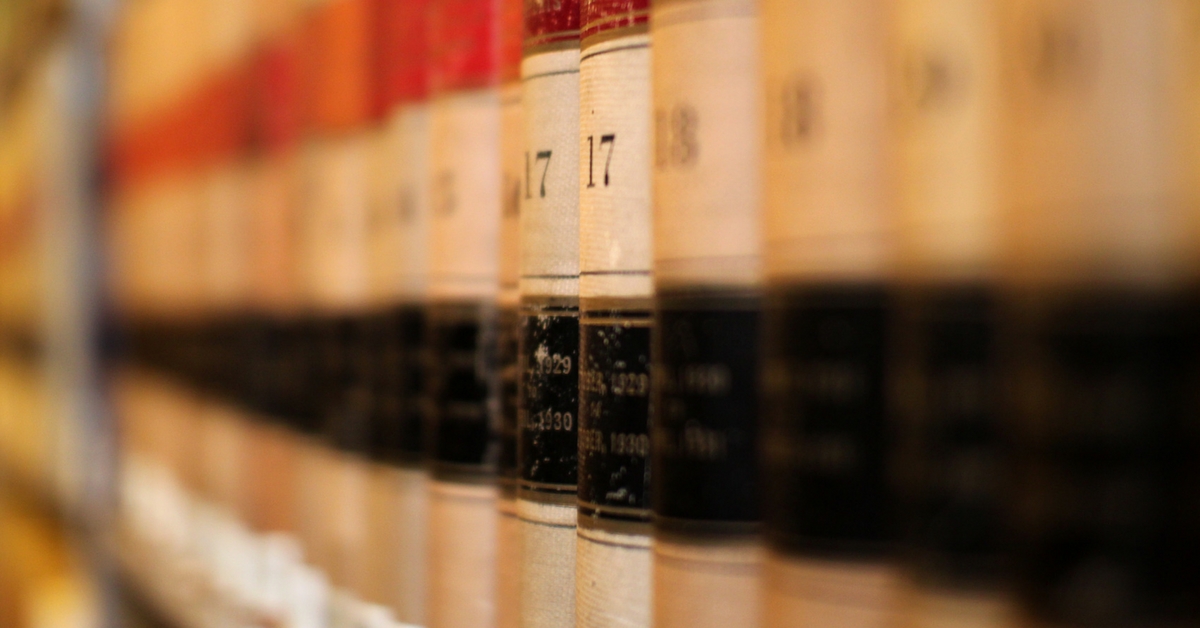The Indian legal system is notorious for being obscure and difficult to comprehend for the lay person. A new online portal hopes to flip this situation on its head by simplifying laws and making them accessible to all Indians.
Nyaaya’s story began with a quest to solve a problem—our laws are complicated, voluminous, and couched in jargon, making them difficult to understand for the lay person. Mainstream news stories, movies, and blogs leave the ordinary person confused at best, and misinformed at worst, about courtroom proceedings, legal rights, and criminal investigations. Even seasoned legal professionals are left to scout for the source of such half-baked facts and fictions.
Seeking a solution to the information asymmetry, Rohini Nilekani approached Vidhi Centre for Legal Policy in Delhi. Their collaboration paved the way for an independent team consisting of members from diverse backgrounds in law, technology, and design.
Together, they are building India’s first free online repository of every central and state law, with the goal of plugging the legal information black hole.

The beta version of the Nyaaya website – released on 3rd November this year – received so many views in its initial days that there was no need to keep it on trial mode—hardly surprising, given its useful content and engaging style. On first look, the website takes the reader through guides explaining the laws in a Q&A format, with all central laws catalogued by category and a guide to the criminal justice system offered from both the victim’s and the accused’s perspective.
Meanwhile, the team continues to find creative methods to improve the content and impart the meaning of laws. “Different laws are best explained in different ways,” says Srijoni Sen, CEO of Nyaaya. The foremost priority is to provide the same content in regional languages in order to make the laws accessible to a larger population, especially to those who may not have immediate access to any other source for understanding the law.
Thus, the team consists of practitioners who translate the laws to convey their nuances in a particular language.
The secret sauce for the success of the team lies in its diversity: a mix of professionals from legal, technological, and design backgrounds within the main team. Members from the legal profession break down the legalese. Technical experts maximize the platform’s reach. Designers ensure user friendliness by incorporating interactive guides and pictorial representations.
Apart from this, many different groups have contributed in different ways, and many more are joining in. Law students from different universities serve as enthusiastic volunteers. Practicing lawyers review the content and lend their expertise to the drafts. Tech developers have helped Nyaaya become open-source. As the platform covers more laws while innovating ways to explain them, the team wants the content to move beyond Nyaaya. Having taken a Creative Commons license, the team envisions channeling the information through as many mediums as possible. For example, NGOs can use the information in their training and sensitisation programs, as can government agencies, employers, and others interested in the dissemination of legal knowledge.
Nyaaya’s impact will be manifold. Given the lack of accurate and reliable information available on the Internet, the one-stop solution for information gathering, the content on Nyaaya will increase the legal knowledge base in the country. In turn, this will make laws more accessible, and thereby empower people. For example, the easy-to-understand FAQs, which make procedures comprehensible, will allow the aggrieved to seek legal recourse effectively. Nyaaya will also ease access to various statutes and their fundamentals for law students, and the practical examples will improve their understanding of it while still in college.
For legal practitioners too, Nyaaya can be the one-stop solution for laws unavailable online that need painful digging up.
Despite being a welcome step, Nyaaya is not without its challenges. To begin with, many laws are not available for the team to catalogue and explain. Further, some areas such as property laws tend to be fact-situation specific. As a result, explaining them in a general manner while also addressing very specific issues is a tricky task. While legal professionals remain indispensable for solving complex legal problems, Nyaaya can help stakeholders understand laws, thereby supplementing expert assistance. It could fill information deficits and bring about much needed transparency, integral to democracy and good governance. After all, we are each presumed – under law – to know the law.
(This article is authored by Ayushi Agarwal, and edited by Vidushi Kothari, from the IDIA Research and Policy Programme.)
Find out how you can support IDIA in making education and law accessible to all here.
Featured image is for representational purpose only. Source: Flickr
Like this story? Or have something to share? Write to us: contact@thebetterindia.com, or connect with us on Facebook and Twitter.
NEW: Click here to get positive news on WhatsApp!
If you found our stories insightful, informative, or even just enjoyable, we invite you to consider making a voluntary payment to support the work we do at The Better India. Your contribution helps us continue producing quality content that educates, inspires, and drives positive change.
Choose one of the payment options below for your contribution-
By paying for the stories you value, you directly contribute to sustaining our efforts focused on making a difference in the world. Together, let's ensure that impactful stories continue to be told and shared, enriching lives and communities alike.
Thank you for your support. Here are some frequently asked questions you might find helpful to know why you are contributing?

